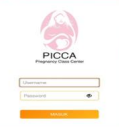Pregnancy class center application as an alternative effort for antenatal class during the COVID-19 pandemic

Downloads
Additional Files
Background: The outbreak of Coronavirus Disease 2019 (COVID-19) has been designated by WHO as a pandemic, causing health services to be significantly disrupted and delayed globally, especially the implementation of the antenatal class. The participation of pregnant women in antenatal classes in Semarang City is only around 25% of the total number of the public health center in the Semarang city area during the COVID-19 pandemic in 2021. There is need a for media innovation in the antenatal class during the pandemic so that antenatal class can still be carried out safely during the COVID-19 pandemic.
Purpose: To produce an antenatal class application that can facilitate pregnant women to attend antenatal classes virtually during the COVID-19 pandemic and test the implementation effect of the application on the knowledge, attitudes, and behavior of pregnant women.
Methods: This study uses the Research and Development (R&D) method, divided into five stages (Data Collection, Product Design, Design Validation, Design Revision, and Product Trial).
Results: An application has been created named PiCCa (Pregnancy Class Center); the test result is feasible to use with a result of 82% and can be used as antenatal class media with a result of 4.32 (p=0.000). The implementation of the PiCCa application can increase knowledge from 12.8 to 18.13 (p=0.000), attitude from 65.36 to 92.3 (p=0.000), and behavior of pregnant women from 19.53 to 32.2 (p=0.000).
Conclusion: The PiCCa application is feasible and can be used as an online media for antenatal classes during the COVID-19 pandemic, and its application has a significant effect on increasing the knowledge, attitudes, and behavior of pregnant women.Authors retain copyright and grant the journal right of first publication with the work simultaneously licensed under a Creative Commons Attribution-NonCommercial 4.0 International License that allows others to share the work with an acknowledgement of the work's authorship and initial publication in this journal.
Authors are able to enter into separate, additional contractual arrangements for the non-exclusive distribution of the journal's published version of the work (e.g., post it to an institutional repository or publish it in a book), with an acknowledgement of its initial publication in this journal.
Authors are permitted and encouraged to post their work online (e.g., in institutional repositories or on their website) prior to and during the submission process, as it can lead to productive exchanges, as well as earlier and greater citation of published work (See The Effect of Open Access).

This work is licensed under a Creative Commons Attribution-NonCommercial 4.0 International License.











